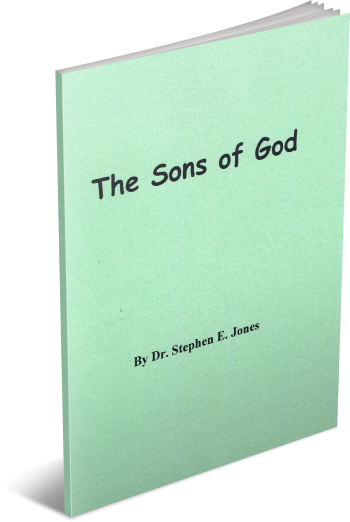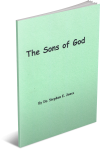Latest Posts
View the latest posts in an easy-to-read list format, with filtering options.


The purpose of Pentecost is to give us a downpayment of the Holy Spirit in preparation for the fullness that is to come when the Feast of Tabernacles is fulfilled. The feast of Tabernacles is the third and final feast day in the law. It represents the time that Israel was supposed to enter the Promised Land after leaving Egypt and after receiving the law at Mount Sinai.
In Israel's experience under Moses, ten of the twelve spies in Numbers 13 gave an evil report on the 50th Jubilee from Adam. (See my book, Secrets of Time.) The people believed the evil report and refused to blow the trumpet of the Jubilee that would have announced their intention to enter the land. And so that day was turned into a Day of Atonement. It should have been a day of rejoicing and jubilation, but it became a day of mourning, fasting, and repentance for refusing to enter the Promised Land.
If Israel had made the right decision on the day of Jubilee (10th day of the 7th month on the Hebrew calendar), they would have entered the Promised Land five days later on the first day of the feast of Tabernacles. Instead, God sentenced them to spending forty years in the wilderness. Ultimately, they entered the land at the time of Passover (Joshua 3:19). This is because Israel had been unable to rise above a Passover level of faith since coming out of Egypt. They had accepted Passover, rejected Pentecost, and now they did not have the faith to fulfill Tabernacles.
The feast of Tabernacles was one week in length. During that time the people were to cut down tree branches and build booths, or "tabernacles," in which to dwell. This signified two things. First, they were to remember their time in the wilderness when they were not supposed to build houses but dwell in tents. Secondly, it prophesied of the immortal body that was to clothe them when that feast was finally fulfilled historically and prophetically.
In regard to the first reason, Leviticus 23:42 and 43 says,
42 You shall live in booths for seven days; all the native-born in Israel shall live in booths, 43 so that your generations may know that I had the sons of Israel live in booths when I brought them out from the land of Egypt.
In connection with this, we find that Israel's first gathering place from which they left Egypt was at Succoth, which means "booths." (See Exodus 13:20.) Thus, the "Church in the wilderness" (Acts 7:38) in Moses' day was told to dwell in booths, rather than houses. This applies to the Church in the Age of Pentecost as well, but it applies in a different way. It meant, "Do not build a denominational house in the wilderness; if you do, you will stop your journey in the wilderness and refuse to go all the way to the Promised land."
When the Holy Spirit moves from time to time in the Church, it is accompanied by a particular revelation of the Word that is important in the historic progression and spiritual maturity of the Church. When the Spirit lifts, then men denominationalize around that particular revelation. It is like building a house at an oasis in the wilderness, and being content to inherit a house in the wilderness. In this way, men fall short of the promises of God. This is how the Church lost the vision of the Promised Land and forgot the feast of Tabernacles. Heaven became their new Promised Land, instead of the glorified body (heaven and earth combined).
In the fourth century A.D. the Church became a distinctly organized religion. Up to that time, it had been more of a way of life, and Roman persecution had prevented it from becoming highly organized with a hierarchy of priests and bishops. But once the persecution stopped, the Church denominationalized and built a religious "house."
Centuries later, the Protestant Reformation spawned dozens of smaller groups. While they were persecuted, they too were largely prevented from building and organizing a religious "house" in the wilderness. But once they obtained their freedom, they fell into the same denominational trap. Their religion became a substitute for a direct relationship with God. Instead of being the Church, they "went to Church." Instead of their life revolving around God, it began to revolve around their churches, shrines, and priests (or clergy). Salvation became a matter of joining the organization, rather than one's direct and personal relationship with God.
Denominational houses are so structured and set in their own ways that when the Spirit of God brings another "revival" and revelatory word, the people cannot hear it. They cannot change. They cannot grow. Like Israel of old, when the pillar of fire moves on, such people are unable to move with it, because they become attached to their houses that are immovable. They become like concrete: all mixed up and set in their ways.
The second significance of the feast of Tabernacles is that it pictures being clothed with the immortal body. The people were to leave their houses (made of dead wood and stone) and live in a booth made of living branches of trees for a week. The Apostle Paul comments on this in 2 Cor. 5:1-4,
1 For we know that if the earthly tent which is our house is torn down, we have a building from God, a house not made with hands, eternal in the heavens. 2 For indeed in this house we groan, longing to be clothed with our dwelling from heaven; 3 inasmuch as we, having put it on, shall not be found naked. 4 For indeed while we are in this tent, we groan, being burdened, because we do not want to be unclothed, but to be clothed, in order that what is mortal may be swallowed up by life.
The "tent" or "tabernacle" in which we now live is the mortal body that we inherited from Adam. Paul speaks of it in terms of clothing also, because when Adam lost his immortal body, he was found "naked" (Gen. 3:10). The only true way to clothe the naked is to receive the immortal body, the tent from above. This is pictured in the feast of Tabernacles, where the people leave their dead house and live for a time in the new and living "booth."
The Promised Land that we are destined to inherit is not a piece of real estate in the Middle East. Land is a good inheritance, but it is not the highest inheritance. Land is an Old Covenant inheritance. The glorified body--the dust of the ground glorified by the Holy Spirit--is the New Covenant inheritance that God has promised us. It is our Promised Land. The book of Hebrews tells us that the New Covenant is based upon "better promises" (Heb. 8:6).
Would you rather be a land owner or a son of God with a glorified, immortal body? The choice is easy.
Some Bible teachers insist that the Jews are supposed to receive the land of Palestine as their inheritance, while we Christians are to receive a heavenly inheritance. Does this mean that the Apostle Paul and all of Jesus' Judean disciples are to receive a LESSER inheritance than we are to receive? Did Paul teach about the glorified body, only to conclude that this inheritance was for someone else? That is ridiculous. In fact, the book of Hebrews was written to Hebrews, and it urges them to come into the New Covenant in order to receive "better promises." The New Covenant itself was addressed to the house of Israel and the house of Judah (Jer. 31:31; Heb. 8:9).
Some may be willing to leave the Jews in their unbelief and relegate them to an inferior promise, but I am not willing to do so. There is only one final destiny for all men and for His creation as a whole, and God will not be content until His plan has been successful. And so I want all men to receive the glorified body, because I see this as the divine plan from the beginning.